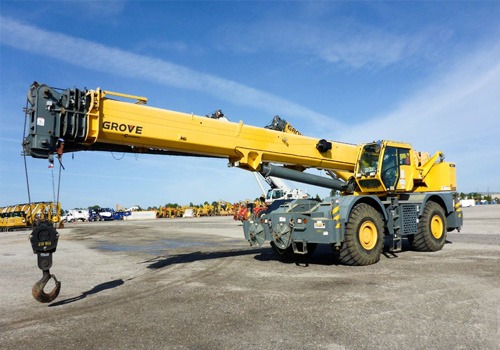As it pertains to purchasing a used construction crane, you do not always receive what you see. The dealers have been known to repaint the cranes and polish the parts in order to make them look new with an aim of covering their true age under the guise of using new paint and refurbishing the parts to look new. Some of the machines already have had their share of wear and tear on various projects even though their surface is shiny. The thing is, these cranes might have undergone massive overhauls or even major repairs. Unless there is a comprehensive maintenance report or a credible inspection, no one can be even able to tell what the machine has been through. Such misrepresentation has the potential of causing unforeseen collapse or premature termination of what has been perceived as a long term investment.
The Real Cost Is Much Higher Than The Quoted Price
It is attractive to see a good low price set down by the dealers to entice the customer to enter the door, but hardly ever does the price represent the actual price of getting a crane. When you start digging, you will usually find a list of other items that they never told you about like transport costs, site assembly charges, operator training, registration documents, and insurance. Besides that, critical components and accessories may not be covered in the original quote, yet you will require them to start up the crane on your job site. What initially appeared as a cost-effective alternative may easily turn into a financial strain, particularly when you failed to count on all the hidden charges at the very beginning. The intelligent purchaser looking at construction cranes for sale will never settle with a sticker price but will demand a full price breakdown.
Safety Certifications May Be Outdated Or Invalid
Not all dealers are careful enough to maintain safety records and some of them exploit those who are uneducated. A crane might seem to be ready to use, yet, in case the safety certification is outdated, expired, or received in another area, with dissimilar rules of compliance, it might spell trouble, both on legal and physical levels. In critical areas such as construction, non-safety compliant equipment may prove a liability to all the parties. It’s not just about paperwork; it’s about protecting workers and preventing costly accidents. Before signing any deal, it’s essential to check the validity of all safety certifications and make sure they align with your local construction and labor laws.
The Crane’s History May Be Incomplete Or Altered
The complete background of the crane is another thing you are not likely to get to hear of a dealer. In the used machinery market it is a common practice to hide previous damages, significant replacement of parts, or a case of misuse. In other situations, even the usage records and working hours are modified in order to make a crane more attractive. Although a low-hour machine might sound perfect, it makes no sense when these figures are not true. Such transparency complicates evaluating whether the crane is really in a good condition or simply works temporarily. The ultimate protection in this case is the third-party inspection.
Spare Parts Availability Could Be A Major Issue
And this is a lesser-known fact: not all the models of the cranes are still easily accessible when it comes to their spare parts. Other traders will sell previous models or models which are no longer manufactured and fail to alert the buyer that sourcing parts to repair them may be costly and time-wasting. Whenever you end up with a machine that breaks and the part to replace it is not only discontinued, but only available with a foreign supplier, you will contend with serious downtime. In the building industry, such delays may end up costing you much more than the repair costs. It may derail your project plan and move deadlines. If you’re exploring heavy equipment for sale, always inquire about the availability of parts and local supplier support of the model you are purchasing, especially if you want to use the crane in the long term.
Warranties Might Be More Limited Than You Think
A dealer may tell you that something is under warranty but that does not mean that it covers all or anything of use. Many warranties are narrowly defined with regard to narrow situations such as defects in the manufacturing process, and they usually have tricky escape clauses. What you might not know is that any slight change, repair by a third party or even the use of the crane in a manner that was not acceptable to the dealer can result in the canceling of the entire warranty. That puts you at expense of costly repairs or replacement. One should read all the small print and question what the warranty is all about, the duration of the warranty and what circumstances may render the warranty void.
Support After The Sale Is Usually Minimal
After the transaction is made, most dealers do not take time before proceeding to the next client. Continuing support such as technical advice, operator training, or trouble shooting is not usually included in the package even though it is necessary in the case of first time buyers, or buyers that are unaccustomed to a specific model of crane. You may be left alone when a problem arises a few weeks after having purchased it. Other dealers will direct you to manufacturers or third-party services, whose arrangement is usually associated with added expenses and time wastage. Before purchasing, it would be good to inquire what type of after sale services would be provided. That one question might protect you against a lot of future frustration.

